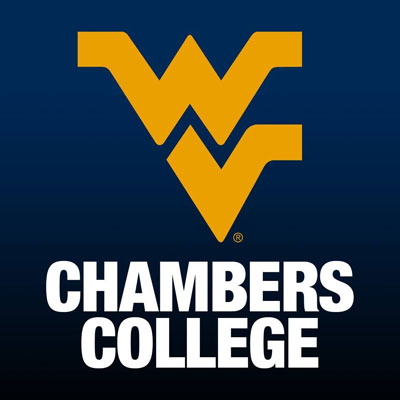With the delta variant on the rise, the lambda variant taking hold and an upswing in COVID-19 cases, the hospitality business is seeing staffing issues as people weigh their personal safety against their employment as the pandemic rages on.
Masking up is one safe precaution. But it’s also an uncomfortable gesture, as some masks may inflict wear and tear on the face or not provide an adequate level of protection for the worker, explained Ajay Aluri, founding director of the Hospitality Innovation and Technology Lab at West Virginia University.
As a native of India, where copper is king and touted for its antimicrobial properties, Aluri thought, “Why not make a safer, more comfortable mask infused with copper when using for a longer period of time?”
“Copper has a special place in the culture and tradition of India,” said Aluri, also associate professor of hospitality and tourism management in the Chambers College of Business and Economics. “People wear copper bracelets and use copper utensils for cooking. And there’s a notion, from the COVID standpoint, that copper is antimicrobial.”
Adrea Welsh, WVU Hospitality Innovation and Technology Lab student, tests the efficacy of the Hygenmask, developed by Ajay Aluri of the Chambers College of Business and Economics. Karen Woodfork, of the WVU Center for Inhalation Toxicology, oversees the technology. (WVU Photo/Brian Persinger)
From the HIT Lab was born Hygenmask, a three-layered facemask containing a copper-infused nano-coated fabric, a sustainable bamboo fabric and an ePTFE (a biomaterial) filter. Wearers also don’t have to worry about “elf ears” since the masks lack ear loops. Elastic head loops go over the head and can be tightened for a customized fit.
WVU HIT Lab is a platform for both industry and academia to come together to solve the problems of the hospitality and tourism industry. Before Hygenmask, Aluri and his students created Hygenkey, a copper touch tool with antiviral and antibacterial qualities, in response to the pandemic in 2020.
“The mask is ideally for people who are always at the front desk or talking to people six to eight hours at a time, whether in restaurants, resorts, airports, or any hospitality and tourism industry,” Aluri said. “Some of these masks out there, if you wear them for a long time, it can be really rough on your skin. So we strived to make it more hygienic and sustainable from a fabric standpoint.”
One of Aluri’s partners recommended a sustainable bamboo fabric, which offers a smooth feel but still fits tight around the face, he said.
But you don’t have to take his word for it. Aluri reached across campus to ask scientists with the WVU School of Medicine’s Center for Inhalation Toxicology (iTOX) to test the product. Since the onset of the pandemic, the Center has been at the forefront of testing all sorts of masks from N95 alternatives to WVU gaiters to the Singer’s Mask to double masks.
The Center found that Aluri’s mask blocked up to 93% of droplets being respired.
“The Hygenmask offers good protection to its users,” said Timothy R. Nurkiewicz, director of the Center and E.J. Van Liere Endowed Professor and chair of the Department of Physiology and Pharmacology. “Combined with physical distancing, good HVAC, limiting time in a crowd and limiting the crowd size, the mask should afford the users some confidence.”
Researchers conducted fit testing, which evaluates how well a mask protects the person wearing the mask. A score of 100 is necessary to pass a N95 mask. Gaiters and saggy disposable masks typically score a “one.”
Aluri’s mask ranged from six-to -15 on the study participants.
“Those numbers are substantially better than what you would find with your average cloth masks, which usually gets a fit factor of two,” said Karen Woodfork, a teaching associate professor in the Department of Physiology and Pharmacology who was part of the research team.
“People send us all kinds of masks and most of them get ones or twos,” Nurkiewicz said. “When we saw Ajay’s mask scoring in that range, that tells you there’s a bit of protection there.”
Nurkiewicz’s lab did not test the copper properties of the mask.
Perhaps there’s no better way to test a product than actually using it.
Aluri donned the mask during a 14-hour flight to India.
“I’m only taking it down when I’m eating or drinking,” Aluri said. “I had no marks on my face and Hygenmask was quite comfortable.”
Most of all, Nurkiewicz and his team believe that Aluri’s mask accomplishes its purpose and will be of benefit to its target audience – those who serve the public day-to-day.
“The mask sits away from your mouth enough so you can articulate better,” Nurkiewicz said. “Also, in terms of regular breathing, you will labor more with a mask that sits right on your lips. There’s some space there, making it more comfortable and making the wearer more likely to keep it on for a longer period of time.”
Originally shared on WVUToday
08/09/21
CONTACT: Heather Richardson
Assistant Dean of Communications, Engagement & Impact|
John Chambers College of Business and Economics
304-293-9625; hrichard@mail.wvu.edu
OR
Jake Stump
Director
WVU Research Communications
304-293-5507; jake.stump@mail.wvu.edu

